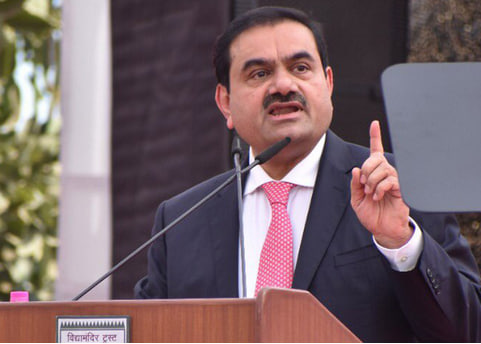Warning-bells : On the Adani saga
India’s regulatory framework must infuse confidence in investors and savers
The latest stock market gyrations induced in large measure by the stock-rout in leading infrastructure and commodities intensive conglomerate , the Adani group, over the last two trading sessions last week has cast the spotlight back on India’s regulatory environment . The highly leveraged group’s market troubles, in the wake of a U.S.-based short seller’s report alleging ‘ stock-manipulation and questionable accounting practices’, dragged down banking shares led by the State Bank of India and even the state-owned Life Insurance Corporation of India (LIC) appreciably on Friday, triggering investor concern about broader financial sector stability . And while a media report citing sources said the Securities and Exchange Board of India (SEBI) had stepped up scrutiny of the conglomerate’s transactions, there has been no official word from the markets regulator. The conglomerate itself has rubbished the short seller’s allegations as being ‘ baseless and discredited and born of mala-fide intent to hurt the group’s reputation’, and is weighing legal action. Notwithstanding how the conglomerate might move to address the concerns raised in the short seller’s report as well as those of domestic investors who appear to have turned chary of the group’s stocks, India’s regulators including SEBI and the Reserve Bank of India have an opportunity, nay an obligation , to clear the air by allaying fears of any broader systemic contagion .
Even granting that the group’s stocks do not have a significant presence or weight on the major benchmark stock indices, and private equity research reports have sought to downplay concerns about the banking sector’s overall exposure to the group, there can be little argument that the major state-owned banks and the LIC are key pillars of the country’s financial system. Given the extent of public trust reposed in these companies in the form of savers’ deposits and life insurance policies as well as taxpayer resources that have been invested to keep the PSU lenders adequately capitalized , financial system regulators would be serving the larger public interest by pre-emptively communicating messages of reassurance . Regulators could also enhance credibility in India as an investment destination by tightening not just the listing requirements but more crucially the enforcement actions in case of egregious breaches of the laws. The global debate over the credibility of credit-ratings that has surfaced from time to time, whether in the wake of the Asian financial crisis of the late 1990s, or the global financial crisis of 2007-08, is also a concern that India’s regulators need to re-engage with. At a time when India holds the G-20 presidency , authorities must ensure the regulatory framework is seen in nothing less than the best-light .
